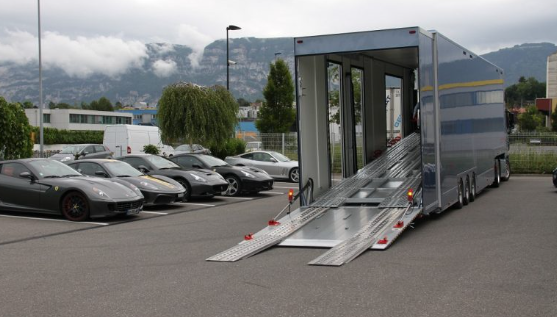Which Is More Expensive, Gas Or Electricity In The UK?
Everything is becoming increasingly electrified as the globe moves away from fossil fuels. Although that may be advantageous for the environment, it will result in higher expenses for many people. If you don’t have solar panels on your roof, you’ve probably seen a rise in electricity prices, especially in the past year.
You may also be curious as to which is more expensive: gas or electricity, in the UK. The price of gas as well as electricity has increased dramatically over the past year all around the world, and the UK is leading the charge on this. The cost of electricity is reportedly still higher. Suppose you are curious to learn more. To learn the justification for it, read this article.
The Price Of Gas And Electricity In The UK
The price of gas and electricity has skyrocketed over the past year, and the UK is at the forefront of the problem. National Grid estimates that in December 2021, the UK’s 7-day average gas price reached record highs, rising to 12.8p per kilowatt hour (kWh), more than 8 times the exact month the year before.
Thankfully, this cost has subsequently decreased to 7.4p per kilowatt hour (kWh). Gas is less pricey than electricity despite these high costs. Check out the table below to see how much gas and electricity cost differently:
Fuel Category and Average Price (pence/ kWh)
• Gas – 7.64p per kilowatt hour
• Electricity (off-peak economy 7) –16.7p per kilowatt hour
• Electricity (on peak economy 7) – 34.1p per kilowatt hour
• Electricity (standard rate) – 28.3p per kilowatt hour
Gas
Gas boilers are said to be far more costly, even if the average gas unit is significantly less expensive than electricity. In addition, this price is extra to strengthen and fix than their electricity-based counterparts.
Additionally, gas boiler efficiency isn’t perfect. Therefore, even the most recent gas boilers might not be able to operate as efficiently as a contemporary electric boiler.
A typical electric heater is 100 percent efficient since it can transform 1 kilowatt hour of heat. Gas boilers, on the other hand, are different because even a brand-new boiler is said to be only 90 percent efficient.
Despite this, natural gas can, however, still be considered to be very cost-effective for heating purposes because the average gas unit pricing is substantially lower than the price rate for electricity. In addition, this supplies 80 percent of the heating for homes in the UK, and more than eight million gas boilers are sold annually.
Electricity
In the UK, it is said that around millions of homes use electricity, which is a very adaptable fuel type that can be used for a wide range of purposes. Power plants that are attached to both the national transmission network as well as the regional distribution network produce electricity.
With distribution networks operating at much lower voltages, electricity is delivered to homes as well as businesses all over the country via transmission networks that carry high volts of electricity over vast spreads.
Over the past few years, technologies for electricity heating have advanced significantly, making a wider range of sustainable and energy-efficient options available. By contrast, natural gas fuels have not been portrayed to the same degree.
With technology developments boosting capabilities and lowering the prices, installation as well as maintenance expenses are far lower than those for gas and manage to last longer on average.
The most recent technological advancements include components that are more efficient and quick, exciting, unique thermal characteristics, and programming that is easier to handle.
Electricity Or Gas – Which Is Less Expensive?
Regular use of gas energy is significantly less expensive than that of electricity, but across-the-board installation, maintenance as well as operating costs seem to favor electricity more, and the average product lifespan also outlasts that of gas.
When electricity is said to be 100 percent efficient, it also offers the best value because all of the electricity you utilize as well as buy is converted to heat.
Why Does Electricity Cost More Than The Gas?
Due to the multinational gas deficit as well as the environmental taxes, electricity prices are rising primarily as a result of these two factors. While environmental taxes have progressively raised the price of power over time, the recent worldwide gas crisis has dramatically raised prices as well.
If you are looking for ways to manage the prices of your gas or electricity, then it will be best for you to check out Utility Bidder, as they provide professional help to deal with a crisis like this so you can manage your business better.
Lack Of Gas Globally
The shortage of Russian supplies and rising global demand are both contributing to skyrocketing gas prices in Europe. Gas prices have grown as a result of scarcity, which has an impact on power prices as well.
Your electricity will be produced using a different mix of energies counting on where you reside in the UK, whether you reside in Northern Ireland, Scotland, Wales, or England. The majority of the country’s energy comes from fossil fuels, primarily natural gas, nevertheless.
For reference, 41.9 percent of the power produced in the UK between September 2021 and November 2021 was produced using gas. Electricity prices are rising in tandem with the rise in gas prices.
Ecological Fees
Over the past ten years, the UK government has levied an electrical environment as well as a social obligation tax. These levies raise the cost of power while helping to lessen emissions because the money rose is used to subsidize the development of renewable energy across the UK.
Electricity has lower wholesale costs as a share of the overall cost than gas. Even while customers might choose to utilize energy because it is more ecologically friendly, environmental levies are primarily to blame for its higher price. These fees pertained to electricity rather than gas because electricity is produced using renewable technology like wind and solar.
The UK government did, however, say in September 2021 that it was thinking about shifting environmental levies from household electricity bills to domestic gas bills, so this could soon change.
Conclusion
By now, you understand which is more expensive: gas or electricity, in the UK. As resources are scarce, people have to deal with high prices of gas as well as electricity.
However, it appears that there are significant pricing disparities between gas as well as electricity in countries other than the UK.
This has to change soon. It is also important for you to know that fuel oppositions are now paying dearly for their decision.
To combat climate change, it is crucial to discover ways to reduce the cost of electricity for households in the UK as well as all over the world.






